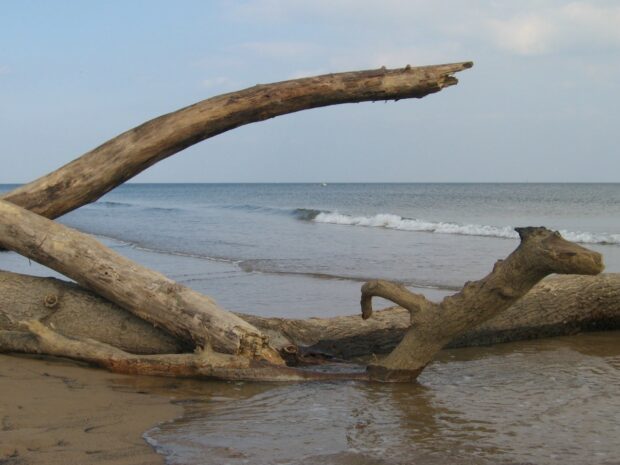
Blue spaces. A phrase we keep hearing at the moment, but what are they, and why are they important? Blue spaces are officially described as ‘outdoor environments–either natural or manmade–that prominently feature water and are accessible to people’. In short - the collective term for rivers, lakes or the sea.
The social benefits of the natural environment and green space are well understood and researched, but what about the benefits of blue space?
We set out to find out more. We commissioned some research to find out what information has already been captured, what it tells us, and how the benefits of blue space compare to those of green spaces.
The two main aims of the project were to:
- capture the positive social and health benefits of blue space
- compare the benefits of blue spaces to the social and health benefits of the environment in general – often referred to in the literature as ‘green space’
We set important selection criteria to ensure we got the right information to help our understanding. We focused on people's sensory exposure to blue spaces, their visits to them, proximity to them and participation in recreational activities on or in blue spaces, such as sailing, windsurfing, swimming etc.
Over 3,700 studies were initially looked at but, taking the above criteria into consideration, we whittled these right down to just 77 studies that we then analysed in detail.
What we found:
- Around half of the population in England use blue spaces at least once a month.
- Visits to blue spaces are more influenced by the season than visits to green spaces are.
- The most common activity near blue spaces is walking, often with a dog, but most visits are not active.
- People who use blue spaces say they feel happier when they are close to them.
- More intense physical exercise is undertaken in green spaces. But, studies have found that being close to the water increases the likelihood of exercise, which in turn, contributes towards the prevention of cardiovascular illnesses, obesity and cancer.
- Living near the coast can have particular health benefits and is associated with more frequent use of the water, and more physical activity.
- Proximity to the coast provides more opportunity for restorative experiences and reducing the amount of ‘noise’ in people’s minds – more so than exposure to green spaces.
The importance of our natural environment and the role it plays in our wellbeing is only now beginning to be understood as research explores its various components.
Everyone knows that water is a critical element of life. But what we now know is just how important blue spaces are for our mental health and wellbeing too. So, we need to take care of them – all of us.
If you’re looking after your health and wellbeing at a blue space this summer, whether fishing, canoeing, wild swimming or simply taking a walk along the beach, be a #WaterWarrior and return the favour by protecting the health and wellbeing of the blue space you enjoy. It’s so easy, some simple steps can make a big difference:
- only flush the 3Ps – pee, poo and paper
- never pour fats, oils or grease down the sink
- never flush wet wipes and sanitary products down the loo
- always take your rubbish away from the beach, lake or river
- always bag and bin your dog’s poo
- never pour waste liquids or throw litter down surface water drains
Read more about the Environment Agency’s research: The social benefits of Blue Space: a systematic review - GOV.UK (www.gov.uk)

2 comments
Comment by Steffy Cairns posted on
Well worded - using 'poo' and 'loo' makes your message accessible, without being patronising!
Comment by Stephanie posted on
England is brave include the need for accessibility in the definition of blue spaces, in view of the very limited access afforded to some areas of natural land. Having moved to Scotland, the right to roam initiatives are so very much better, and healthier, for the vast majority of the population. There is no significant evidence of increasing accidents nor land damage that the landowners bring up as a common problem.
It's time England advance their thinking for the majority population and allows access for wellbeing activities, such as walking and picnicking beyond the very limited footpaths.